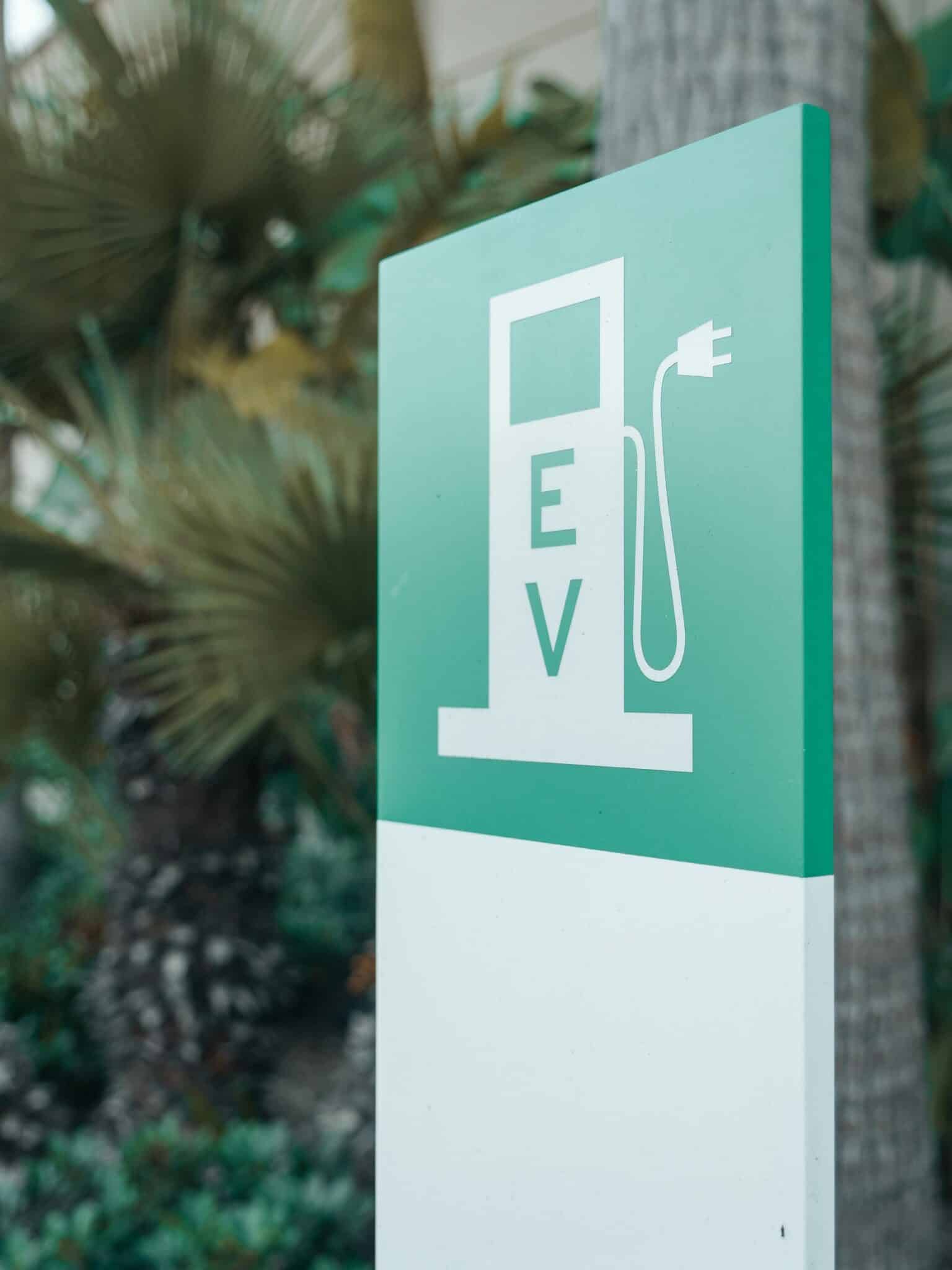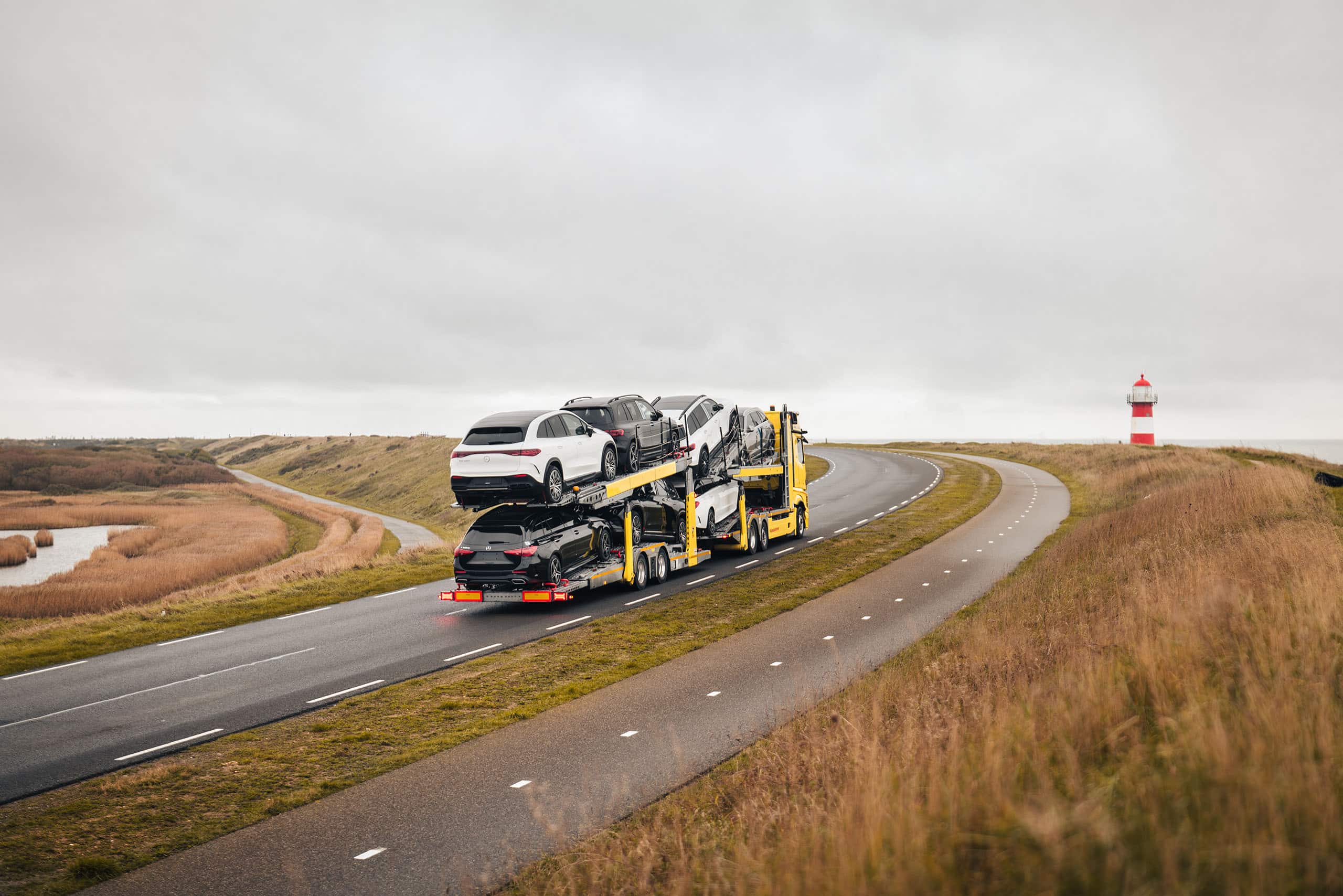Electric trucks are gaining ground
The electrification of car and freight transport is in full swing, and this will become increasingly visible on the roads in the coming years. According to a recent analysis by ING Bank, the number of electric trucks in the Netherlands is growing rapidly, partly due to supportive policy and tax incentives. This e mobility trend also opens new opportunities for sustainable car transport.
A growing fleet, also suitable as car carriers
Currently, less than 1% of trucks in the Netherlands are electric (around 1,500 vehicles), but this number is expected to rise to around 25,000 by 2030 — roughly 15% of the fleet, assuming the total number of trucks remains stable.
An important aspect here is that these electric trucks, also known as e-trucks, can also be deployed as car transporters — for example with a 4-car, 6-car or 8-car trailer. This makes them a more sustainable alternative to conventional car transport using diesel vehicles, without sacrificing capacity.
Cost incentives speeding up the shift
A key driver behind the rise of electric trucks on Dutch roads is the truck toll, due to be introduced in July 2026. This will mainly affect diesel trucks, while electric trucks will receive an 80% discount. The introduction of a kilometer-based toll and the European Emissions Trading System (ETS-2), in which companies must pay for their CO₂ emissions, also makes electric driving more attractive.
According to ING, all these measures combined will lead to a 10 to 12 percent increase in transport costs for diesel trucks over the next two years. This creates a significant cost advantage for transport companies that switch from diesel to electric — including in the car transport segment.

Growth and market developments
Last year already saw many electric trucks registered in the Netherlands, with the first quarter of 2024 showing notable growth compared to previous years. According to Roger Alm, president of Volvo Trucks, the heavy duty electric truck market continues to develop strongly, partly due to the growing range of electric truck models and increasing demand from transport companies.
Although electric trucks still cover fewer kilometers per trip on average than diesel vehicles, the rise in electric trucks on Dutch roads is undeniable. This development aligns with the European Commission’s targets to increase the number of zero-emission vehicles each year and to promote sustainability in the transport sector.
The use of electric vehicles such as electric truck models not only offers cost advantages, but also helps reduce CO₂ emissions and strengthens the sustainable image of the transport sector. For logistics service providers and OEMs transporting vehicles to dealers, export ports or storage locations, this is becoming an increasingly attractive option.
Subsidies support the growth of electric trucks
An important factor contributing to the rise of electric trucks in the Netherlands is the availability of subsidies. Both the Dutch government and the European Commission offer financial support to make the purchase and use of electric trucks more appealing. The AanZET subsidy is a widely used scheme that reimburses part of the purchase cost and is available again this year for transport companies. A recent development is that hydrogen-powered trucks are now also eligible for this subsidy.
These subsidies significantly reduce the high upfront cost of electric trucks, encouraging transport companies to switch from diesel to electric more quickly. They also stimulate investment in the necessary fast charging hardware and infrastructure, which is essential for a successful transition. Thanks to these financial incentives, the number of electric trucks on Dutch roads continues to grow each year, contributing to the European Commission’s sustainability goals.

Truck manufacturers investing heavily in electric trucks
More and more truck manufacturers are committing strongly to the development and production of electric trucks. Volvo Trucks is taking a leading role, with a broad portfolio of electric trucks and growing series production across multiple factories worldwide. According to the Volvo Group, demand for electric trucks continues to rise sharply, both in Europe and in markets such as North America and Norway.
In addition to Volvo Trucks, other major brands such as Scania, MAN, Mercedes-Benz and Daimler are also expanding their electric truck offerings and investing heavily in innovation and charging infrastructure. These joint efforts by manufacturers are making the electric truck range increasingly diverse, giving logistics companies more choice when making the switch to electric.










